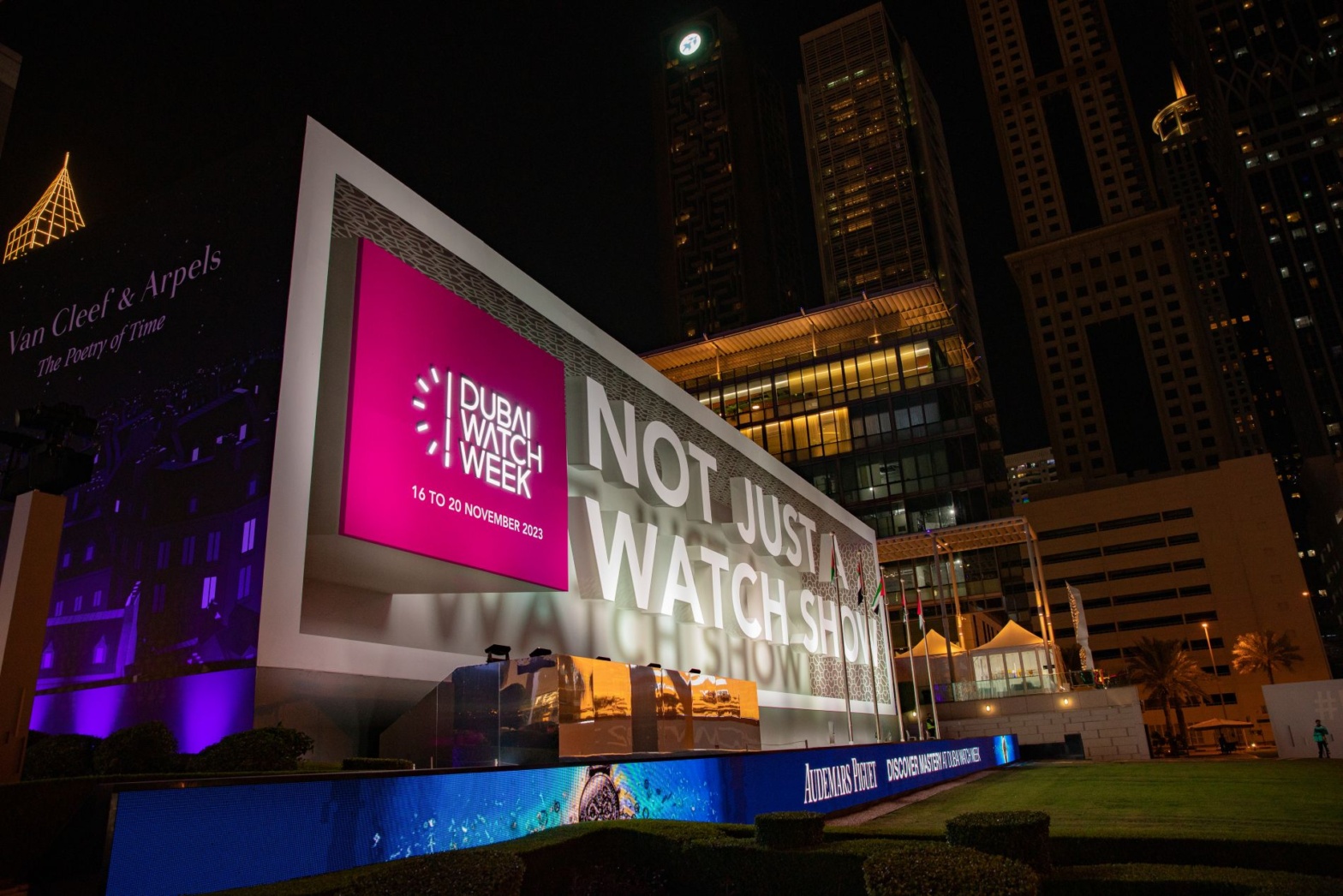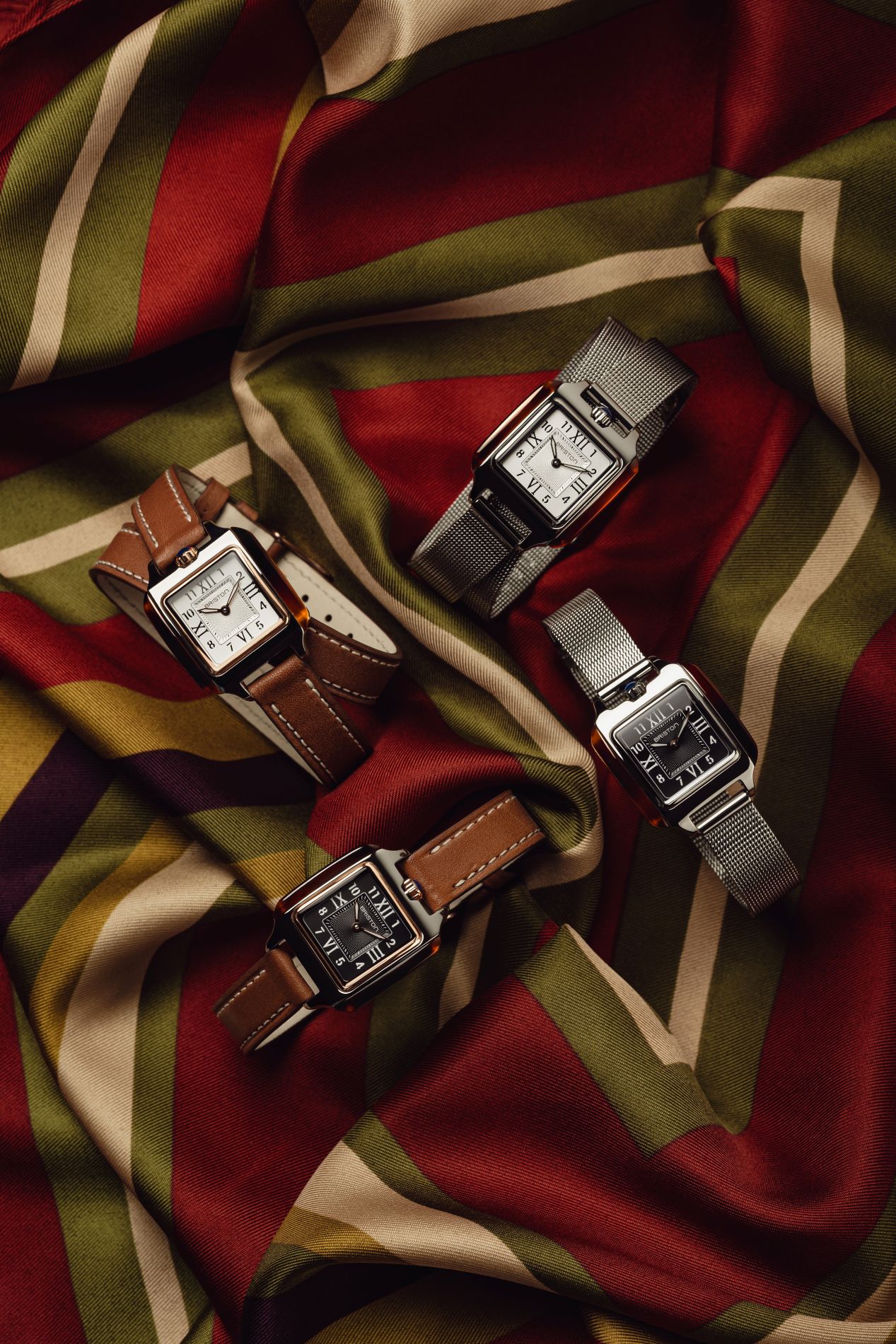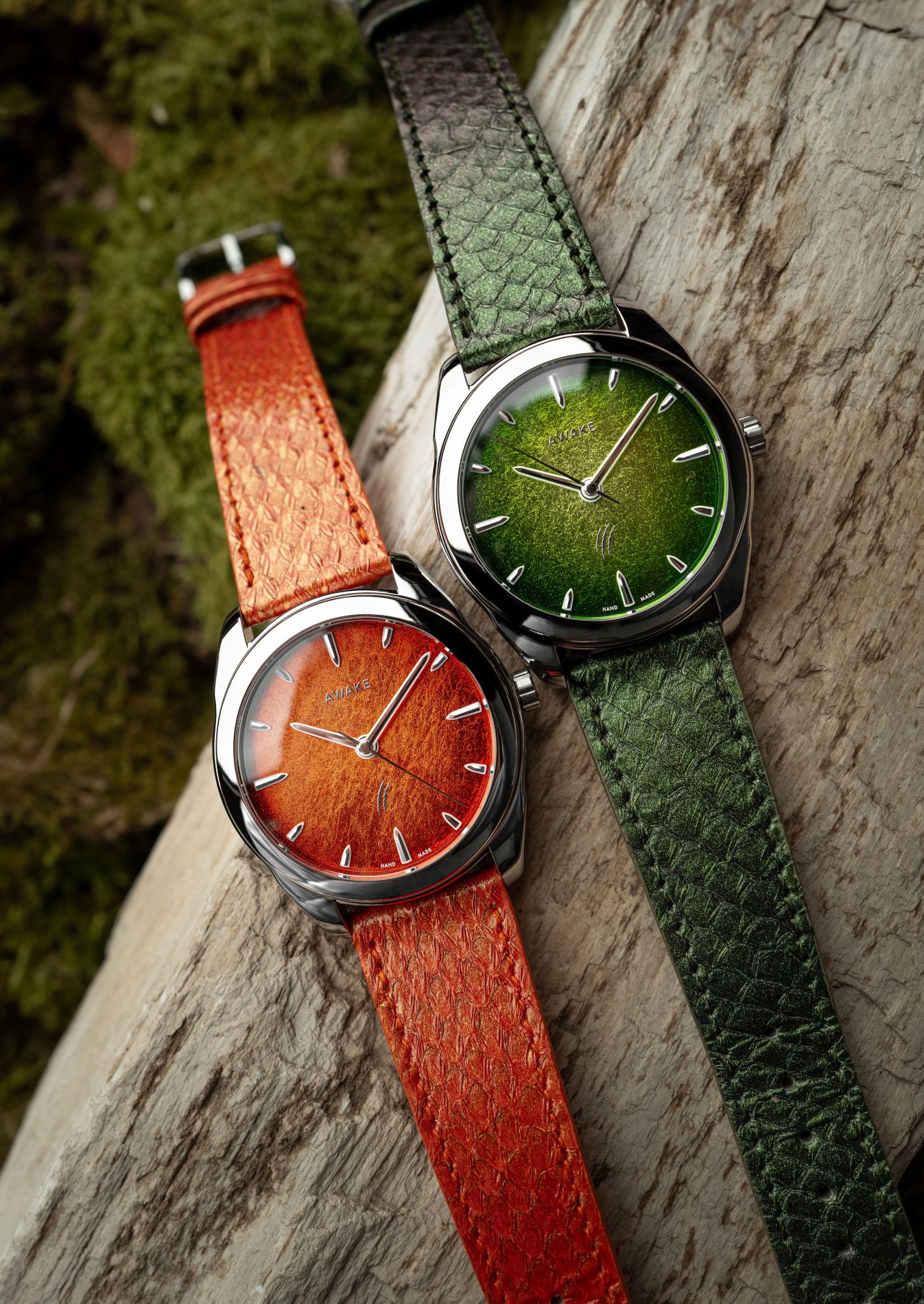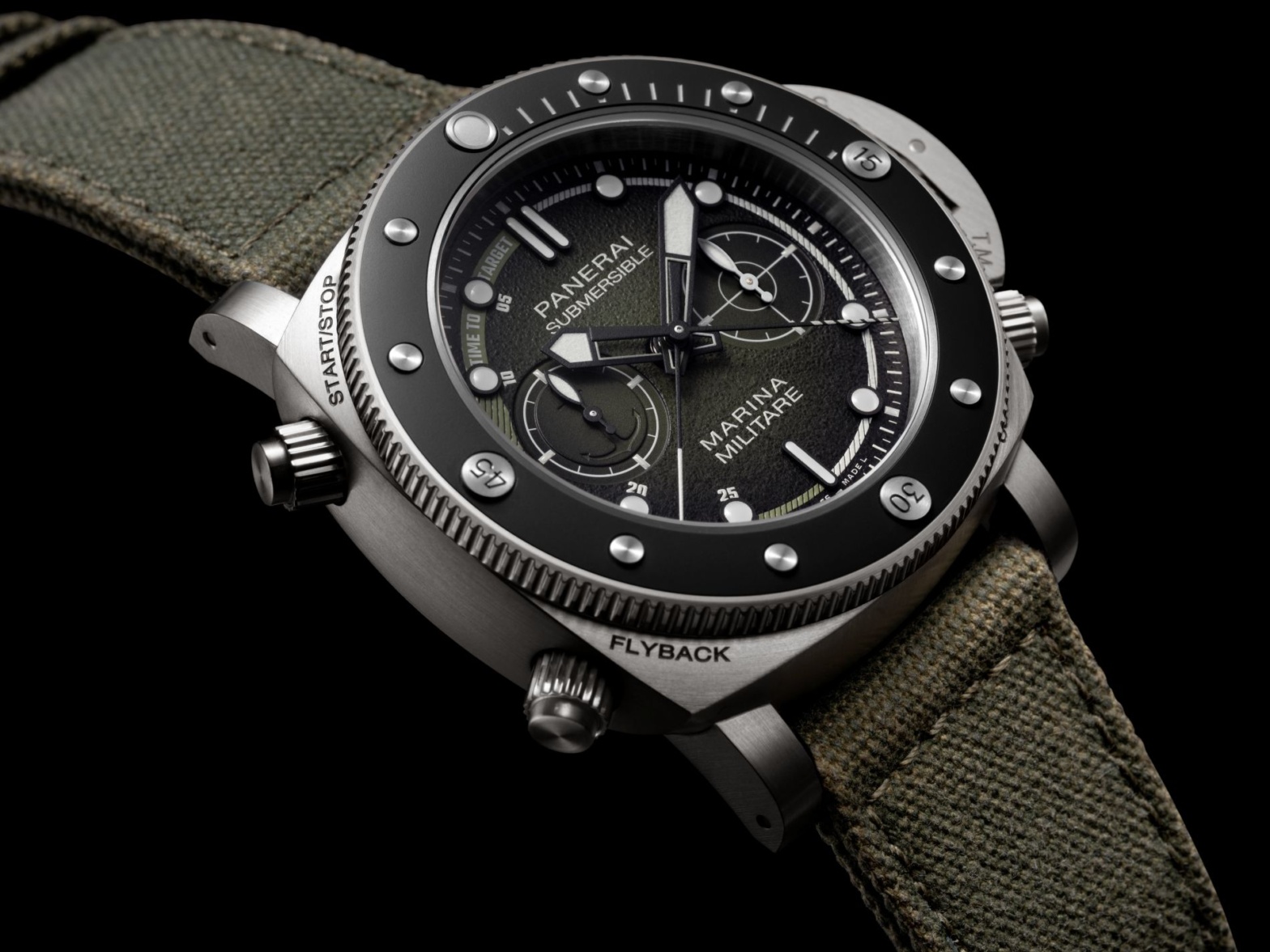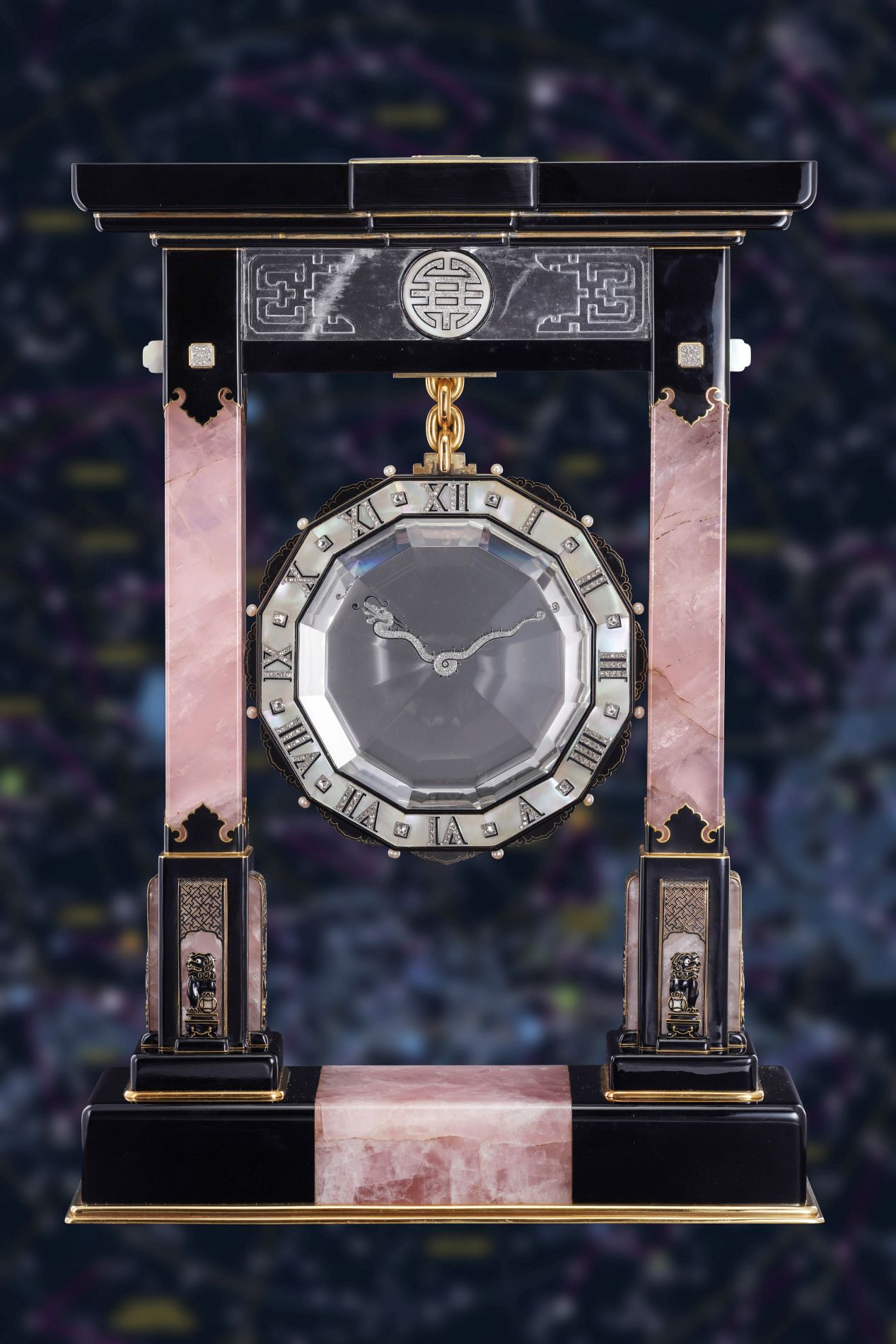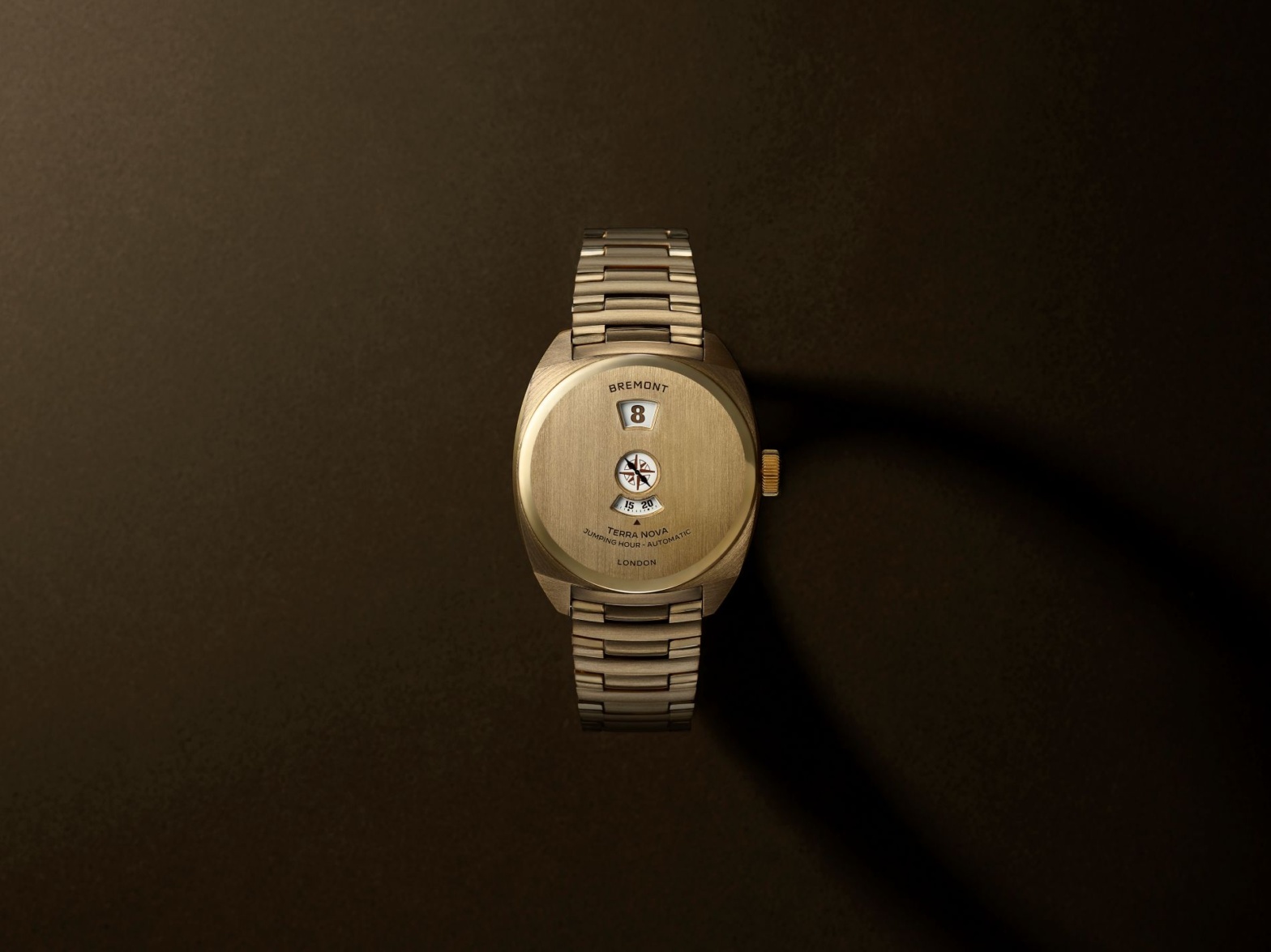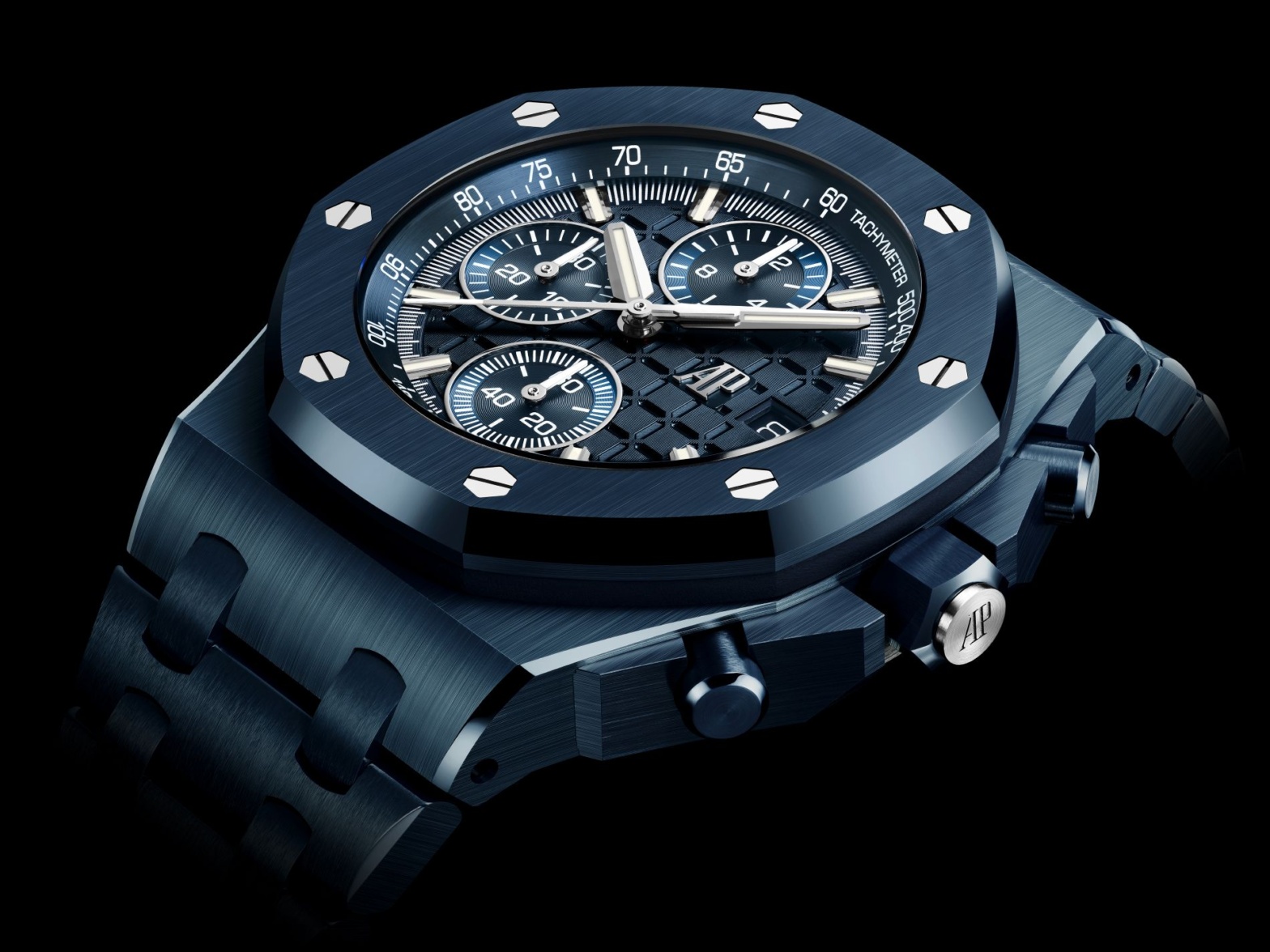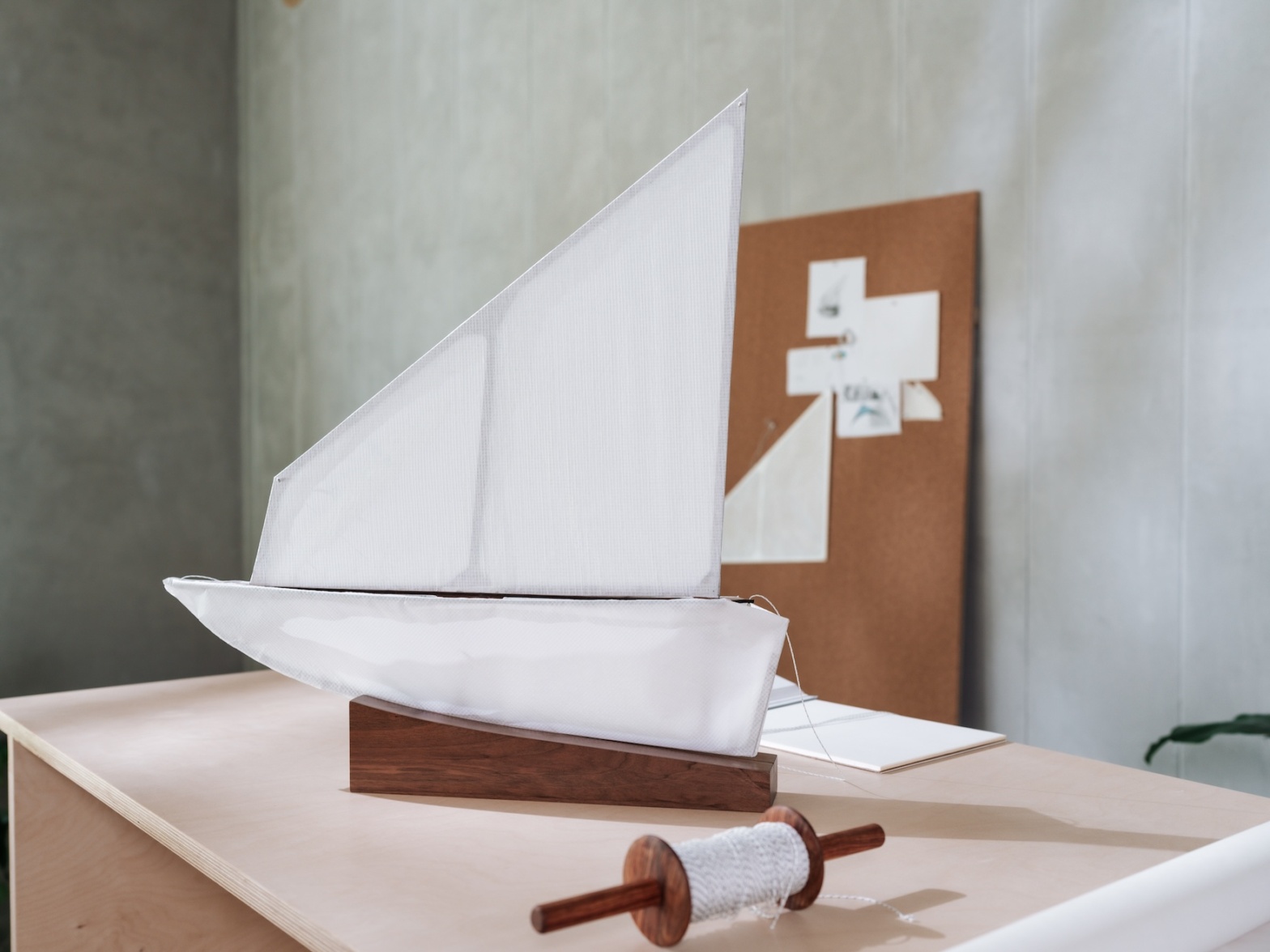Arnold & Son, a benchmark in classic fine watchmaking, is exploring uncharted territory on the map of horology. Longitude Titanium is a sports-chic COSC-certified chronometer with a 42.5 mm titanium case. The dial of Longitude Titanium is vertical satin-finished in a continuation of the bracelet’s finish, which is subtly intersected by the polished edges of its links. With a power-reserve display at 12 o’clock and an imposing seconds counter at 6 o’clock, Longitude Titanium pays tribute to John Arnold’s marine chronometers, his revolutionary vision and his decisive role in calculating longitude at sea.
The aesthetics and construction of John Arnold’s marine chronometers were necessarily classic and functional, and were adapted to the harsh conditions of the high seas. Longitude Titanium, a contemporary interpretation of the great English watchmaker’s work, coherently combines this naval heritage with a refined design and highly resistant materials. The movement’s ‘chronometer’ certification is an essential addition to this scene, with its historical ties to Arnold’s creations and his quest for accuracy.

Ergonomic spirit
As a natural consequence of this maritime identity, Longitude presents a titanium case whose curves and profile are directly inspired by the design of contemporary sailing boats. The case middle is taut like a ship’s waterline, while the case back is basin-shaped like a keel. The base of the bezel – the ship’s rail – is graduated with 60 notches, echoing the fluted ring of John Arnold’s marine chronometers. The finishes – polished on the flanks and satin-finished on the flat surfaces – continue this high-sea influence. The crown, protected by a shoulder, is screwed down to guarantee water-resistance to 100 metres.
Curved spirit
With its flowing curves, Longitude Titanium is both comfortable to wear and a joy to behold. Each of the series is fitted with an integrated titanium bracelet. Everything is rounded with no straight lines, even in the finer details as the links themselves are domed. The succession of gentle curves and combination of polished and satin-finished surfaces are a continuation of the case’s identity. Longitude Titanium is complemented by an interchangeable system and comes with an additional rubber strap.

Watchmaking spirit
The dial of Longitude Titanium has been designed in a graphic and historical spirit. This graphic aspect can be seen in the satin-finished, polished and luminescent hour-markers that recall the shape of the bracelet links. It is also graphic in the display of its indications, which are aligned with the vertical axis of the dial: a mirror-polished power-reserve indicator shown by cut-outs in the dial at 12 o’clock, the hour and minute hands in the centre, and the imposing small seconds at 6 o’clock. However, this layout was also chosen for its ties to John Arnold’s marine chronometers, as it was he who introduced this arrangement and established it as standard.
Chromatic spirit
Cornwall, John Arnold’s birthplace, inspired the colours of the Longitude dials. The first edition, limited to 88 timepieces, is adorned with a sandy golden shade called ‘Kingsand’ in reference to the eponymous beach, which is one of the county’s hidden jewels. The second version sports an ocean blue, while the third and final series is a fern green.

Inventive spirit
During the 18th century, maritime trade was the main source of wealth. New routes opened up on the three major oceans, offering vast prospects. However, high-sea navigation was hampered by as yet incomplete maps and charts and, above all else, by inaccurate longitudes, i.e. the position of boats on the east/west axis. In 1714, the British Parliament passed the Longitude Act, which offered a prize of twenty thousand pounds to anyone who could develop a simple and dependable method for determining the longitude of a ship at sea. Briton John Harrison thus invented the marine chronometer, which would be used for centuries to come. His method involved measuring the difference between the local time on the boat, by finding solar noon, and the time of an onboard precision clock capable of keeping the time at the port of departure. John Arnold developed, improved and simplified the principles presented by Harrison. He started to supply his marine chronometers in 1771, which were more robust, affordable, extremely accurate and would go on to become essential to high-sea navigation.
Kinetic spirit
At the heart of Longitude Titanium beats the new A&S6302 calibre, certified by the Contrôle Officiel Suisse des Chronomètres (COSC). It is wound by an oscillating weight with a design influenced by sailing. Its shape is reminiscent of the prow of an 18th-century English frigate cleaving through the water, and it is carved from a single block of 22-carat gold. Its felloe is engraved with graduations similar to those on a sextant – another maritime element.
Mechanical spirit
The calibre is lavished with the same high standard of finishes commonly seen at Arnold & Son, such as chamfered bridges with the house’s specialty ‘Rayons de la Gloire’ motif. Like all its movements, the A&S6302 was entirely developed, produced, decorated, assembled, adjusted and cased up at the Manufacture in La Chaux-de-Fonds. This calibre features a large barrel and an oscillation frequency of 4 Hz, providing a 60-hour power reserve.


